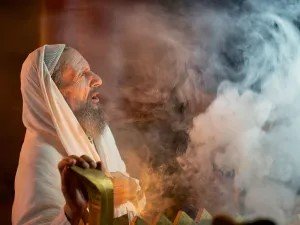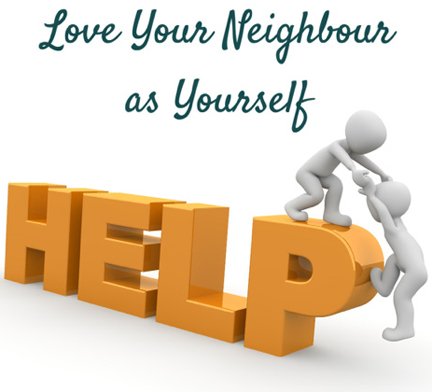Rev. Karen Pidcock-Lester had recently become the first female senior pastor at a 148-year-old Presbyterian church. The women’s group invited her to attend a welcome gathering, and during the gathering one of the pillars of the organization stood up to make an official welcome speech. She said that she was so happy to have Karen as her pastor, and she knew that she would be as dear to them as “Debbie,” a former minister’s wife, who was “such a lady. The windows on her house were always spotless, a clear panel that the light of God could shine through. The windows of her house were like the windows into Debbie’s soul.” Debbie of the clean windows had been, in the words of this pillar of the women’s group, a “saint.”
Karen wrote, “I understood where this woman was coming from: she was coming from the same school that had shaped my own mother, the ‘Cleanliness is Next to Godliness’ School of Homemaking. My mother had lived by the same canon, the one with ordinances such as make the beds every morning, clear the counters and put away the dishes every night, take down the curtains and rotate the mattresses every spring and fall. This canon guided my mom as she created a warm, secure, inviting nest for the family over the years. It was a good collection of accumulated wisdom, and it offered guidelines for turning a house into a home. However, guidelines are one thing; measures of moral worth are another. From the lips of this pillar, the homemaker’s guide sounded like the criteria used for the judgements of God. A bit stung, I smiled as saintly a smile as I could muster through clenched teeth.”
Perhaps Karen was thinking about this passage in Mark 7, because behind the speech of the women’s group lady was the same issue that came up in the exchange between Jesus and the Jewish pillars of the community. Let’s look at the story.
A group of Pharisees and legal experts (also known as scribes) had come from Jerusalem and had seen some of the disciples of Jesus eating food with “unclean” hands; that is, that had not ritually purified their hands through special washing before eating. Pharisees and “all the Jews” practiced this careful hand washing before eating as a way of observing the rules that had been handed down by the elders. They also observed other rules that had been handed down. So the Pharisees asked Jesus, “Why are your disciples not living according to the rules?”
Jesus’s response was to call them hypocrites and to quote Isaiah 29:13: “This people honors me with their lips, but their hearts are far away from me. Their worship of me is empty since they teach instructions that are human words.” Jesus says that they ignore God’s commandments but hold onto rules that were created by human beings. He is essentially accusing them of misinterpreting what matters to God and of being hypocrites.
Loye Bradley Ashton, Professor of Religious Studies at Tougaloo College in Tougaloo, Mississippi, has written a bit about hypocrisy. He calls it a disconnect between the moral values and standards that we claim to have and those that we actually practice in our behavior. Hypocrisy is a negation of authentic life, in that it is a life that is acted out to fool others, or a role that we take on and pretend to be. We are hypocrites when we say one thing and do something else, and nowhere is that any more obnoxious, it seems to me, than in our religious practice.
While the Pharisees and scribes were so concerned about the disciples eating with ritually unclean hands, making the food ritually unclean, Jesus pointed out that it is not anything from the outside going into the body that makes a person unclean. Rather, it is what is found on the inside that comes out of a person that makes them unclean. And he named a list of those evil things: sexual sins, adultery, thefts, murders, greed, evil actions, deceit, unrestrained immorality, envy, insults, arrogance, and foolishness. As I read that list, I see five of the Ten Commandments: adultery, theft (steal), murder, greed (covet), and insults, slander (false witness). Certainly, those would be more serious matters to God than whether or not a person washed their hands a certain way before eating.
The Pharisees had gotten so focused on the observing of rituals and rules that had been written and handed down over the generations that they had forgotten that these rules were all man-made and were not nearly as important as the commands and laws that God had given. They were so focused on the minor/outer observances of their religion that they were neglecting the major/inner orientations and outer ways of living of their faith. The people were ignoring God’s commandments but were focused on holding onto rules that had been created by human beings. Sometimes – perhaps even often – those rules could and should be broken.
Karen Pidcock-Lester talks of traditions that we may have that started out having good intentions which we should hold onto but should let go of certain practices that came out of them. For example, if the goal of sacred music is to draw attention to God, then music of any style is sacred if it does that. We don’t have to hold onto one hymnal or style of music as the only style that is sacred or the only style that we will use in worship. We can allow for new styles to come into our services when they are desired by new worshippers. If the motive behind the tradition of dressing up for worship was to show respect and reverence to God, then any person who comes to worship with respect and reverence for God in their heart is welcome regardless of whether or not they dress up.
Pastor Karen tells about a Sunday service when she finished preaching her sermon and stepped down from the pulpit, joining in with the congregation in singing a hymn. As she was singing, a man came up to her and whispered, “I want to be baptized.” His name was Ed. He had been married to a member of the church for nearly 40 years. He had had his troubles over the years, had lost a business or two, and wrestled with addiction to alcohol. Everyone knew that Ed could be a little bit gruff. But Karen also knew that his soul had been longing for God for many years, but he had not been able to find his way to accepting God’s grace. Now here he was saying, “I want to be baptized.”
In the Presbyterian denomination, baptism requires a vote of the elders to be approved. It also calls for an elder to participate in the baptism. And there were good reasons for those rules. But on this Sunday, there was no vote and no official elder. Baptism in any denomination requires water, but on this Sunday there wasn’t even any water in the baptismal font.
Several verses of the hymn gave Karen time to think and to pray. And maybe she thought about this passage from Mark while she was praying. When the hymn was over, she happened to look up and see a bottle of water under the pulpit that she hadn’t even opened. Karen picked up the bottle, led Ed over to the baptismal font, and began the words to the baptismal service. “Ed, do you turn from the ways of sin and evil that would separate you and the whole world from the love of God? Do you turn toward Jesus Christ?” Even thought it wasn’t according to the tradition of the elders, there was no doubt in anyone’s mind when Ed answered, “I do,” that his heart was in it. For that matter, so was the heart of everyone who happened to attend church that morning. When the next meeting of the elders took place, they voted unanimously to approve Ed’s baptism. Ed’s windows might not have been very clean, but it was clear that he was one of God’s saints.
The Pharisees and scribes missed the point when they were so focused on the rules and traditions handed down from their elders that they missed obeying the commands of God, even some of the Ten Commandments, the basic laws of Judaism. We can also focus so much on the wrong things that we miss the more important part of Christianity. It isn’t about what some holier-than-thou pretense that we may put on to appear to be good Christians. What matters is whether or not we love God and love our neighbors, whether we do justice and love mercy and act humbly before God. It’s about what is inside our hearts that results in kindness and compassion towards others that counts. Don’t settle for an outside-in theology; dig deeper and practice true Christianity.




























